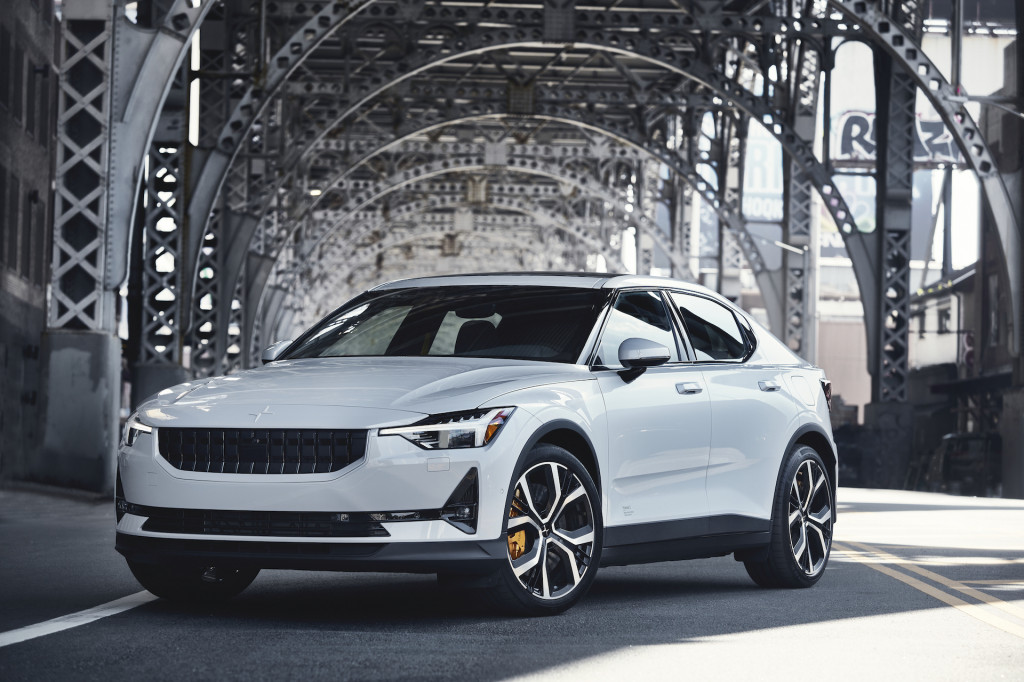Polestar on Thursday said it would publish full details on the "climate impact" of its electric cars.
The move "sets new standards for other car makers to follow," Polestar declared in a press release. Based on what Green Car Reports has seen released to consumers, that would indeed make it one of the first few automakers of any kind to do so.
Polestar pointed to "the disturbing lack of transparency across the industry, as it is today impossible for a consumer to compare the climate impact of different cars."
One issue Polestar highlighted was the differing methodologies used by various automakers to calculate the life-cycle carbon footprint of vehicles. That means emissions not only from driving, but from manufacturing as well.
Polestar has already published the methodology for its life-cycle emissions assessments, as well as results for the Polestar 2, its first all-electric production model. Similar reports will presumably be generated for each new Polestar EV.
Using its own methodology, the automaker calculated that the Polestar 2 actually has a higher manufacturing-phase carbon footprint than an internal-combustion Volvo XC40—based on the same Compact Modular Architecture (CMA) platform. That's because of an energy-intensive battery production process, Polestar said.
However, once the car is delivered to the customer, and charged using renewable energy, emissions virtually disappear, Polestar noted. After 50,000 kilometers (31,000 miles), the XC40 surpasses the Polestar 2 in total emissions, the company said.

2021 Polestar 2
That conclusion neatly lines up with other research on the carbon footprint of electric cars. One persistent myth that has been repeatedly debunked is that electric cars have higher lifetime emissions due to the manufacturing process, or from using coal-fired electricity grids for charging.
As a peer-reviewed process from the Union of Concerned Scientists has attested for years, electric cars have had a far lower lifetime carbon footprint than internal combustion vehicles—and recently, in nearly every set of conditions.
A study recently pointed out some of the errors in the data that some German automakers had been using to downplay the carbon gains of moving to EVs.
The most noteworthy of the studies that made some peculiar assumptions that don't mirror the real world or the entire manufacturing ecosystem is a 2017 Swedish study.
Even outside of its lifetime carbon footprint, sustainability has been one of the hallmarks of the Polestar 2 and its materials choices and details.
Is having a certified number for lifetime carbon footprint an important part of your vehicle decision, and should other automakers follow suit? Let us know what you think in your comments below?












